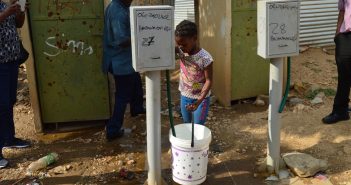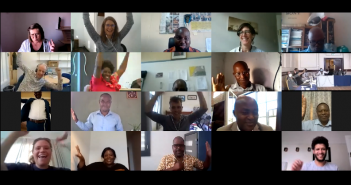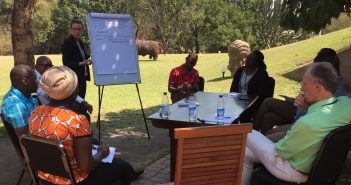The available climate science and the models that are used by scientists to predict how climate will change in the future contain inherent uncertainties. Decision-makers in society must understand these uncertainties if they are to make informed decisions using available scientific knowledge. However uncertainty can be an unsettling term for decision-makers so a recent study for the Future Climate for Africa (FCFA) programme identified the constraints and the opportunities around communicating climate information. The study aimed to provide guidelines that can support those who are communicating climatic uncertainties to decision-makers. The study drew on interviews with stakeholders, scientists and researchers involved in climate change projects in West Africa and Southern Africa (AMMA-2050 and FRACTAL).
During the study’s interview process, many stakeholders said that they did consider weather or seasonal information in their decision-making. Yet often climate information was not fully taken into account and it was sometimes confused with seasonality and weather patterns. Explaining the terms that are used by scientists and researchers to communicate climate science is fundamental to a clearer understanding of the available information and data.
The word uncertainty when used in the climate information was often misunderstood by stakeholders as ‘not knowing’. The study therefore recommended that there needs to be a balance of trust established to ensure that uncertainty is correctly understood and to reverse any mistrust in the scientific data. The FRACTAL team recently developed an animation that can be used to introduce decision-makers to the concept of uncertainty within climate science – view it here on Vimeo or click the image above.
Co-production methods were highlighted as useful tools that can help develop context relevant communication materials and formats and that can support decision-making. It is important that the climate information is relevant and that developed materials meet the needs of stakeholders so that it can inform decision-making and so that decision-makers are more likely to act upon it.
You can read the full ARF2 Report from the study here. Jessica Kavonic works for ICLEI-Africa, a FRACTAL consortium partner. ICLEI-Africa supported the study with city interviews.



